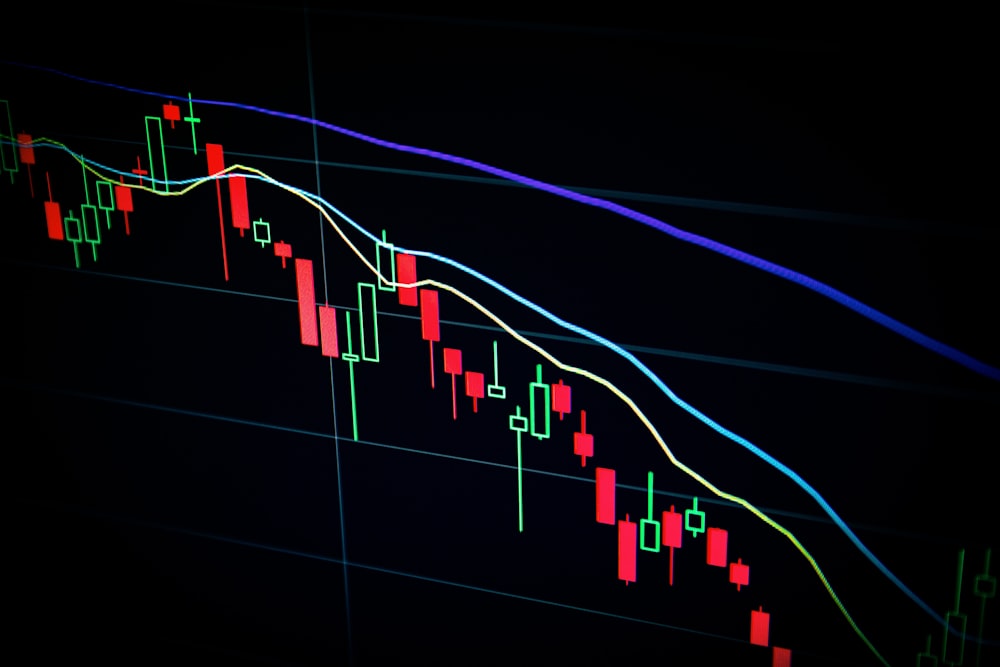📚 Table of Contents
Why Invest in Commodities?
Commodities investing has long been a cornerstone of diversified portfolios, offering a hedge against inflation and market volatility. From gold and oil to agricultural products like wheat and coffee, commodities provide unique opportunities for traders and long-term investors alike. But with so many platforms and resources available, where should you start? This guide explores the best platforms and websites for commodities investing, helping you make informed decisions.
Best Platforms for Commodities Trading
When it comes to trading commodities, choosing the right platform is crucial. Here are some of the top options available today:
1. Interactive Brokers
Interactive Brokers is a powerhouse for commodities trading, offering access to futures, options, and ETFs across global markets. With low commissions and advanced trading tools, it’s ideal for both retail and institutional investors. The platform supports trading in energy, metals, and agricultural commodities, making it a versatile choice.
2. TD Ameritrade
TD Ameritrade’s thinkorswim platform is a favorite among active traders. It provides real-time data, advanced charting, and a seamless trading experience for commodities futures. The platform also offers educational resources, making it suitable for beginners.
3. E*TRADE
E*TRADE is another strong contender, offering futures and options trading with competitive pricing. Its user-friendly interface and research tools make it a solid choice for investors looking to diversify into commodities.
4. Robinhood
While Robinhood doesn’t support futures trading, it allows investors to trade commodity-based ETFs and stocks. Its commission-free model is attractive for those looking for a simple entry into commodities investing.
5. MetaTrader 4/5
Popular among forex and CFD traders, MetaTrader platforms also support commodities trading through CFDs. While not ideal for direct futures trading, they offer leverage and flexibility for speculative traders.
Top Websites for Commodities Research
Before diving into commodities investing, thorough research is essential. Here are the best websites for market insights and analysis:
1. Investing.com
Investing.com provides real-time commodity prices, news, and technical analysis. Its comprehensive charts and economic calendar help traders stay ahead of market-moving events.
2. Bloomberg Commodities
Bloomberg offers in-depth coverage of global commodity markets, including expert commentary and futures data. Its terminal is widely used by professionals for advanced analytics.
3. Kitco
Specializing in precious metals, Kitco is a go-to resource for gold, silver, and platinum investors. It provides live spot prices, news, and storage solutions for physical metals.
4. CME Group
As the world’s largest derivatives marketplace, CME Group’s website is invaluable for futures traders. It offers contract specifications, trading volumes, and educational materials.
5. USDA Reports
For agricultural commodities, the USDA’s reports on crop yields and supply-demand dynamics are critical. These free resources help traders anticipate price movements in grains and livestock.
ETFs and Mutual Funds for Commodities
For investors who prefer indirect exposure, ETFs and mutual funds are excellent options:
1. SPDR Gold Trust (GLD)
One of the largest gold ETFs, GLD tracks the price of physical gold. It’s a liquid and cost-effective way to invest in the precious metal.
2. iShares Silver Trust (SLV)
Similar to GLD, SLV provides exposure to silver prices. It’s popular among investors betting on industrial demand and inflation hedging.
3. Invesco DB Commodity Index Tracking Fund (DBC)
DBC offers broad exposure to a basket of commodities, including energy, agriculture, and metals. It’s a diversified play for long-term investors.
4. United States Oil Fund (USO)
USO tracks crude oil prices, making it a favorite for energy traders. However, it’s important to understand the risks of contango in futures-based ETFs.
5. PIMCO Commodity Real Return Strategy Fund (PCRIX)
This actively managed mutual fund invests in commodity-linked derivatives and TIPS for inflation protection. It’s suited for investors seeking professional management.
Risks and Considerations
Commodities investing isn’t without risks. Here are key factors to keep in mind:
1. Volatility
Commodity prices can swing dramatically due to geopolitical events, weather conditions, and supply disruptions. Traders must be prepared for sudden price movements.
2. Leverage Risks
Futures and CFDs often involve leverage, which can amplify gains but also magnify losses. Proper risk management is essential.
3. Storage Costs
Physical commodities like gold or oil require storage, which adds to costs. ETFs and futures avoid this but come with other trade-offs.
4. Regulatory Changes
Government policies, such as export bans or tariffs, can significantly impact commodity markets. Staying informed is crucial.
Conclusion
Commodities investing offers unique opportunities for diversification and hedging, but success depends on choosing the right platforms and conducting thorough research. Whether you prefer trading futures, investing in ETFs, or analyzing market trends, the resources outlined in this guide will help you navigate the complex world of commodities.


Leave a Reply